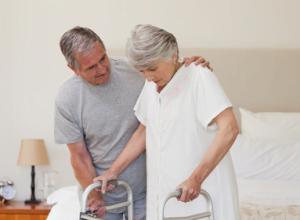I have become very involved in my son’s school here in Barcelona and go there two mornings a week to take a Spanish class. I am usually there early and, because people are checking out patientpower.info, some folks are beginning to speak to me about medical topics. Last week came word a 10-year-old fifth grader had been suddenly diagnosed with a large tumor on one of her ovaries. Everyone was in shock. On the very day the girl was having surgery to remove the tumor her father called me looking for guidance.
I have become very involved in my son’s school here in Barcelona and go there two mornings a week to take a Spanish class. I am usually there early and, because people are checking out patientpower.info, some folks are beginning to speak to me about medical topics. Last week came word a 10-year-old fifth grader had been suddenly diagnosed with a large tumor on one of her ovaries. Everyone was in shock. On the very day the girl was having surgery to remove the tumor her father called me looking for guidance. My advice was a reprise from what is written in my book, The Web-Savvy Patient, and it’s probably worth revisiting here.
When you or a loved one is told you have a serious illness it’s the bad news you will never forget. Most people have to “pick themselves off the floor” or struggle to catch their breath. Their future seems like it is being ripped away. And certainly the parents felt that when their little girl was diagnosed with something unimaginable and especially at that age. Cancer in children is very rare, and an ovarian cancer in a child is a very rare pediatric cancer. But whether it is rare or not, it is still one of your worst fears. So how to proceed:
- Get clarity on what you are dealing with. In the little girl’s case it was a large, blood-filled tumor with “germ cells.” It is not the same ovarian cancer adult women get. And the cure rate is much higher
- Determine the experts who should be consulted and on your healthcare team. In this case, knowledgeable specialists all agreed on the best hospital for pediatric oncologic surgery. But are their others who should be consulted, even at a distance?
- Discuss a treatment plan. Surgery may be step one, but what about chemo or non-chemo systemic therapy? What about radiation? There are more questions that follow from all of that –
- Is there a clinical trial for a new medicine, equally effective or more than standard therapy, and is that only available at another center?
- If radiation is needed, where is the equipment and expertise needed to make the radiation the most “targeted” and to lower the risk of side effects?
- Take care of your head, as well as your body. No matter who is the patient, a serious diagnosis usually affects a family. Get some counseling. You are not the first family to deal with such a heavy load. Also, draw on friends and family –
- Appoint someone as the communications manager to field all the calls and questions from people who care; maybe even put up a webpage.
- Appoint someone to handle logistics. Welcome others who want to drop off food, take your other child on an outing, do your laundry.
- If possible, try to take a longer view, while celebrating small victories. For example, today – just days after the little girl’s surgery, she is visiting her school. She has plenty of energy. It’s a joy to see. Yes, tough days of chemo and radiation may lie ahead and there will be highs and lows, but the odds are on her side to lead a full life. Be realistic, but look forward toward that.
The girl’s mother and I chatted for a while today and I made all of these points. I urged her to get my book, on Amazon. I know it can help because people have told me it does. Mostly recently comes a comment and a photo from Linda Weiser in Florida. She is currently receiving IV meds for chronic lymphocytic leukemia, CLL, the same disease I was treated for 13 years ago. Linda keeps the book by her side. It’s her touchpoint for being a “powerful patient.”
The parents of the child with the ovarian tumor are just beginning their journey and working hard to take back control, as much they can. Certainly the diagnosis is life changing for all of them. But, as we have said many times here before, as medicine improves more and more, for many there is a good life, often a full life, in the years to come.
Wishing you and your family the best of health!
Andrew







